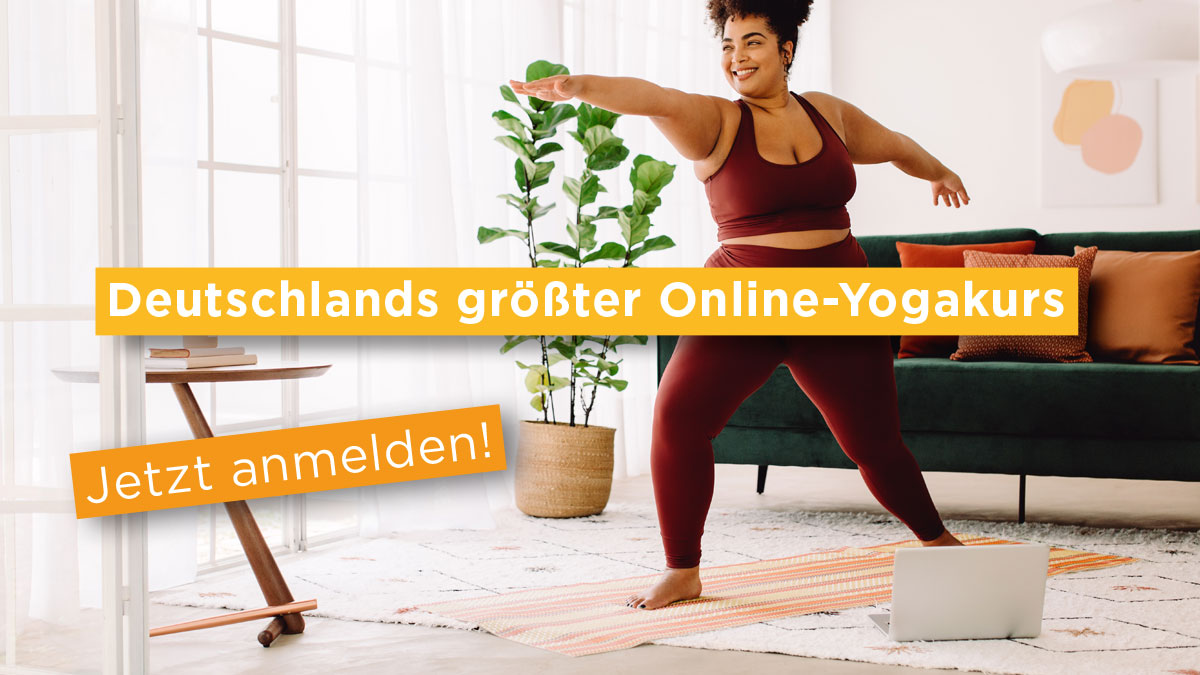
Free: With online yoga throughout the year
Germany's largest online yoga program with over 10,000 registered participants will continue in 2025. All year round, every Tuesday evening. Be part of it!
Our certified yoga teachers Fjodor and Vera focus on common workplace-specific stresses and strains and put together a varied program throughout the year. Whether shoulders, neck, lower back, pelvic floor or feet: our body parts, which are often stressed in everyday life, get the attention they deserve in the yoga sessions. Relaxation sessions and breathing exercises help you to calm down.
Join in live or practice flexibly with the recording at your own pace - as it best suits your everyday life.
Do you have any questions in advance? Take a look at our FAQs.
Free online yoga: our yoga teachers
Our yoga teachers Fjodor and Vera are certified trainers with extensive experience. They take it in turns to teach the pme Familienservice online yoga course.
Kickstart exercise for the new year: seated cat-cow (Marjariasana)
The 'cat-cow pose' is a yoga exercise that is usually practiced on a yoga mat. Here is an adapted version that you can do comfortably on a chair.
- Sitting posture: Sit upright on a chair with your feet parallel to the floor.
- Hand placement: Position your hands on your thighs or knees.
- Inhale - cow pose: lift the chest slightly - lower the abdomen forward - roll the shoulders back and down - look up to lengthen the neck.
- Exhale - cat pose: round your back upwards like a cat stretching - lower your head down to curve your spine - tighten your abdominal muscles.
- Repetition: Alternate between the cow and cat position in a breathing rhythm.
This adapted version on the chair allows for a gentle stretch of the spine and encourages flexibility even when you can't sit on the floor. Note, however, that it is important to listen to your body and perform the exercise in a range that is comfortable for you
Free online yoga: now available on YouTube
Our popular Tuesday evening yoga class is now available on YouTube. You can join in at any time. To make sure you're always up to date, simply subscribe to our YouTube channel and click on the notification bell. This way you will be notified as soon as a new video is published.
Date: From now until 12/31/2025, Tuesdays from 8:00 p.m. to 9:30 p.m.
Venue: virtual
Contact: familienservice
Costs: free of charge
Click here for our YouTube channel
pme health: Effective BGM in blended learning format
Our occupational health management (OHM) services are characterized by their holistic approach and individuality. From strategy development to needs analysis and evaluation, we establish, supplement and optimize companies' occupational health management portfolios in order to keep their employees healthy, productive and motivated.
The personal support of employees according to a new holistic mind-body & soul approach is one of our key factors and goes hand in hand with our blended learning concept. We combine digital and live formats to promote exercise, nutrition, stress prevention and mindfulness and make our knowledge available regardless of time and place. One of the ways we achieve this is by using the Mindance app for mental health.
#pmebewegt: funny videos and exciting online courses to join in!
We have developed #pmebewegt to incorporate more movement into everyday life: We use short, funny videos to show how more movement can be integrated into everyday life.
Our online classes take place live and are suitable for everyone: From a short, active break at your desk to sofa yoga, for which you don't even have to leave the couch, to an evening back-fit class, there is something for everyone.




